We live in an era of accelerating, disruptive climate change, with catastrophic consequences that every credible forecast says will worsen. To look for answers we recently organized a conversation with Gladys Kalema-Zikusoka, Francisco Hildebrand and Tero Mustonen. All are deeply knowledgeable about the realities of their ecosystems, and even more deeply committed to finding solutions to the challenges thrown up by the changing climate.
ABOUT OUR GUESTS
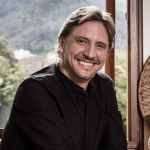 Francisco Hildebrand has, since he was a kid, spent time living in the Colombian Amazon Rainforests where his commitment to work hand in hand with indigenous communities to protect the Amazon begun, making him the third generation in his family dedicated to protecting cultural and biological diversity.
Francisco Hildebrand has, since he was a kid, spent time living in the Colombian Amazon Rainforests where his commitment to work hand in hand with indigenous communities to protect the Amazon begun, making him the third generation in his family dedicated to protecting cultural and biological diversity.
Since 2011 Francisco has directed Gaia Amazonas, a Colombian NGO founded by his father Martin von Hildebrand (Tallberg Global Leadership Price Awardee) whose mission is to protect the Amazon. He also leads the largest initiative for the recognition of indigenous governments (equivalent and “indigenous Municipalities”) and in the definition and implementation of traditionally- based conservation strategies over an area the size of Greece in the Amazon.
Additionally, Francisco is a board member of the RAISG and North-Amazon Alliance Initiative, collaborative networks that engage the pioneering NGOs of the Amazon Basin for the protection of a 2 million sq. kilometers (an area 4 x France).
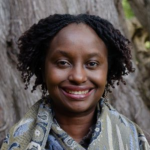 Dr. Gladys Kalema-Zikusoka is a Ugandan wildlife veterinarian and founder of two award-winning entities:
Dr. Gladys Kalema-Zikusoka is a Ugandan wildlife veterinarian and founder of two award-winning entities:
– Conservation Through Public Health, an organization dedicated to the coexistence of endangered mountain gorillas, other wildlife and humans in Africa.
– Gorilla Conservation Coffee, a social enterprise which provides income generating opportunities to impoverished farmers living in proximity to Uganda’s endangered mountain gorillas. It has been instrumental in improving their livelihoods as well as the gorillas and their habitats.
She is a true trailblazer, leading Uganda and the rest of the World to recognize the intrinsic interconnectedness between wildlife and humans. Never before in living memory has this interconnectedness been more apparent than right now as we watch the Global COVID-19 pandemic unfold.
Dr. Gladys’ passion is an inspiration, as she works tirelessly to bring to the World’s attention the importance of a One Health approach to conservation, which recognizes these links and creates programs that foster synergies between conservation and public health, for the mutual benefit of all.
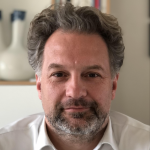 Maarten Koets initially worked for international non-profit organisations and more particularly for organisations supporting visual-journalism and reducing CO2 emissions. Six years ago, he moved into the world of consultancy, advising a range of NGOs and other organisations on their strategies, governance and project management. During this period, he also had the pleasure of being closely involved with the Tällberg Foundation. At first as secretary to the global leadership prize jury, subsequently as a board member and currently as a pre-juror of the Tällberg-SNF-Eliasson Global Leadership prize.
Maarten Koets initially worked for international non-profit organisations and more particularly for organisations supporting visual-journalism and reducing CO2 emissions. Six years ago, he moved into the world of consultancy, advising a range of NGOs and other organisations on their strategies, governance and project management. During this period, he also had the pleasure of being closely involved with the Tällberg Foundation. At first as secretary to the global leadership prize jury, subsequently as a board member and currently as a pre-juror of the Tällberg-SNF-Eliasson Global Leadership prize.
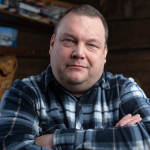 Tero Mustonen is the President and Co-Founder of the Snowchange Cooperative based in Selkie, North Karelia, Finland. Snowchange is a non-profit cooperative that was originally founded in 2000. It is also a large network of traditional and Indigenous communities around the world.
Tero Mustonen is the President and Co-Founder of the Snowchange Cooperative based in Selkie, North Karelia, Finland. Snowchange is a non-profit cooperative that was originally founded in 2000. It is also a large network of traditional and Indigenous communities around the world.
Despite its green global image, Finland has long relied heavily on the exploitation of Nature for income and debt repayments; Tero Mustonen is working to close that gap by smashing accepted Finnish norms and creating new realities. Mustonen is an academic, a professional fisherman and the President of Snowchange, an organization that leads landscape-scale rewilding projects. He works to protect and restore the unique biocultural diversity of Arctic and boreal regions in the face of climate change in solidarity with the region’s local and Indigenous peoples. He is a vocal advocate for Finland to take a role in progressive, climate leadership while his role as a lead author in the most recent assessment of the Intergovernmental Panel on Climate Change (IPCC) is bringing global prominence to how Finland and other Arctic nations can meaningfully contribute to global climate efforts. He is also the head of the village of Selkie, North Karelia, Finland.
We live in an era of accelerating, disruptive climate change. This isn’t about the random bad storm, but about systemic, dramatic shifts in climate that manifest as extreme weather of all sorts: wet bulb temperatures that threaten life, droughts destroying crops, floods of Biblical proportions, shrinking ice caps, etc. Change is everywhere, with catastrophic consequences that every credible forecast says will worsen.
But how can we understand the reality of those changes? What’s actually happening in the Arctic and in the boreal forests, in the Amazon and in Africa? How do changes in those disparate ecosystems relate to each other and to places where most of us live? What’s likely to happen next, and what can we do about it?
To look for answers we recently organized a conversation among Ugandan veterinarian Gladys Kalema-Zikusoka, Colombian Amazon expert and a friend of its indigenous people Francisco Hildebrand, and Finnish fisherman, scientist and village head man Tero Mustonen. All are deeply knowledgeable about the realities of their ecosystems, and even more deeply committed to finding solutions to the challenges thrown up by the changing climate. Our discussion was moderated by Maarten Koets, and hosted by Vamvakou Revival and the Stavros Niarchos Foundation (SNF).
Listen to the episodes here or find us on a podcast platform of your choice (Apple podcast, Spotify, Acast, Stitcher, Google podcast, Youtube, etc)
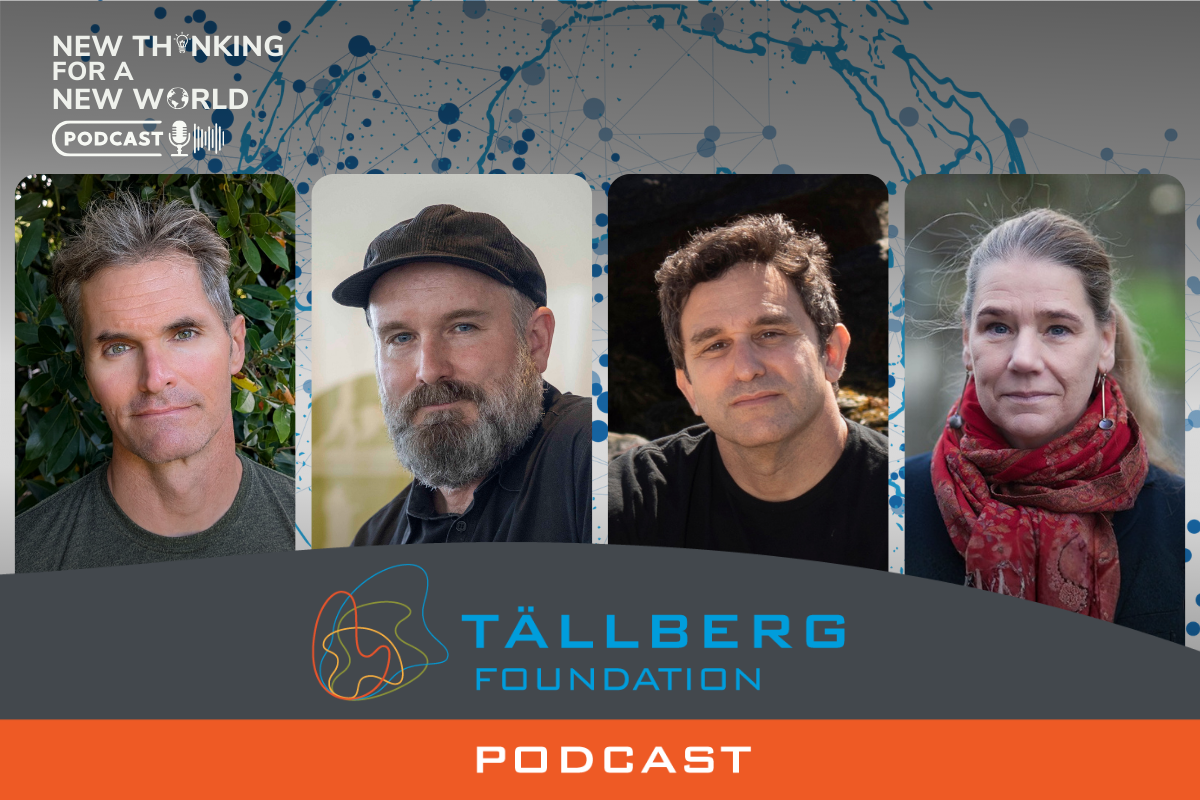
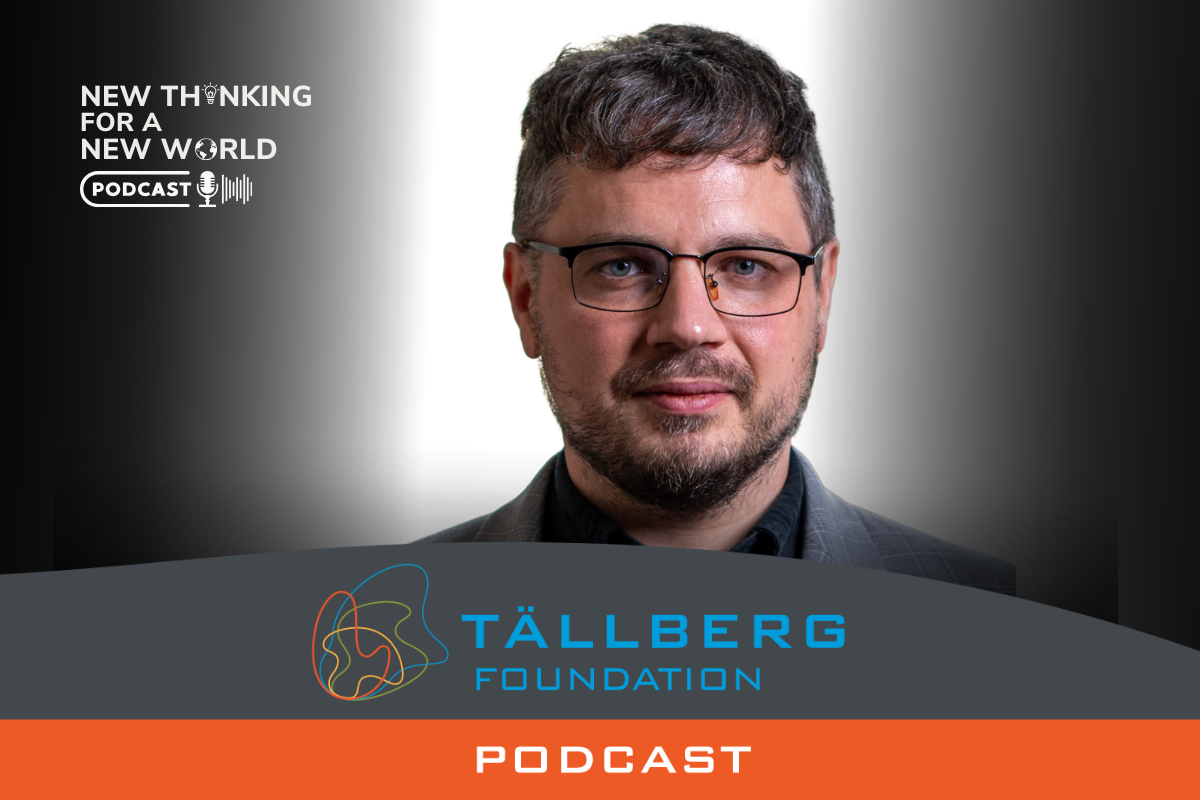
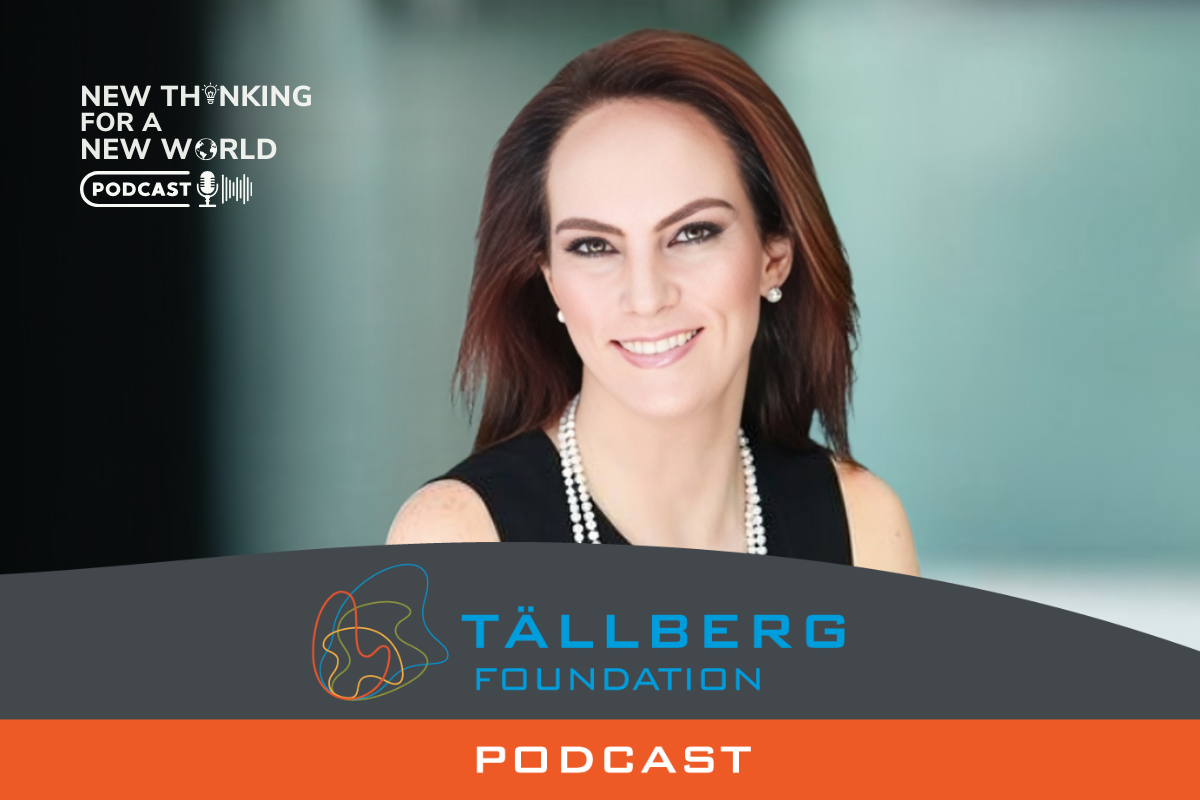
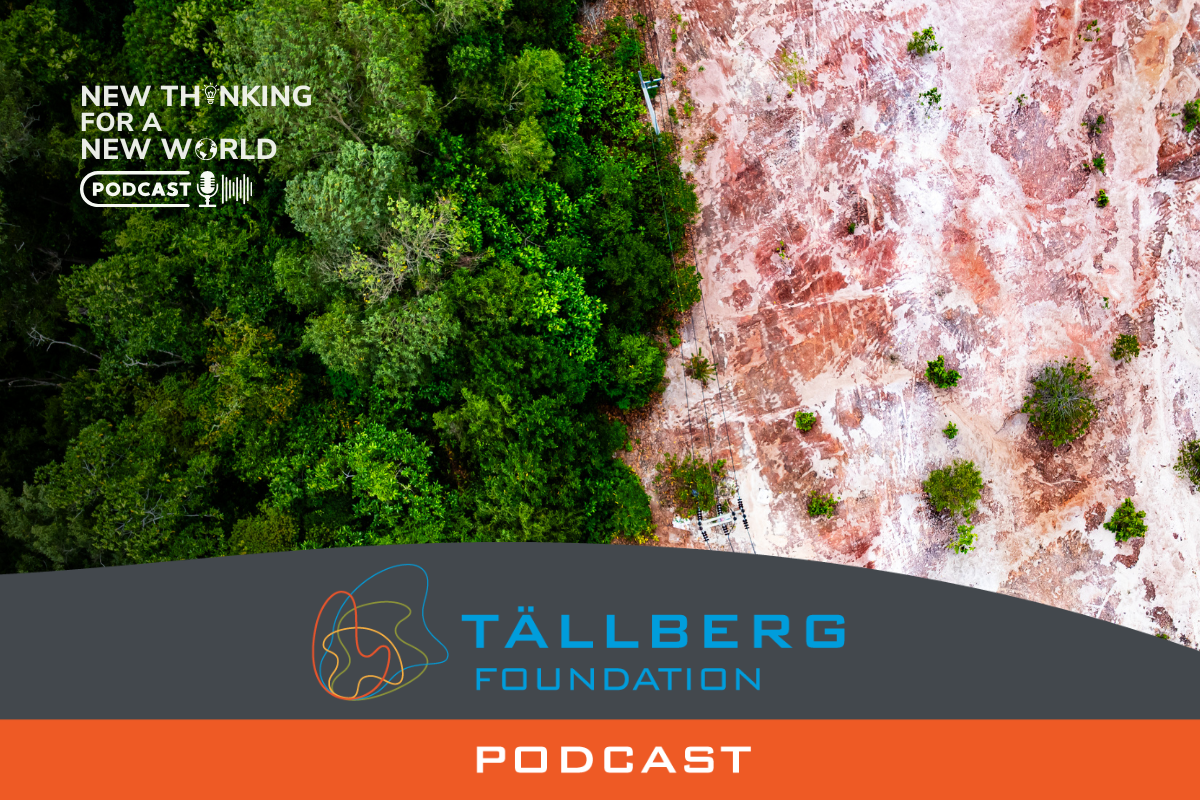
New thinking for a new world – don´t fool with mother nature!
From the Vamvakou meeting keynotes: We live in an era of accelerating, disruptive climate change… Change is everywhere, with catastrophic consequences that every credible forecast says will worsen…But how can we understand the reality of those changes?
Thank you all for your contribution on this urgent subject. I will share some of my comments on this interesting podcast. To start, it was a major focus on ecosystems and very little on the global climate change general impact to human lifestyle, societies and nations. I think we all can agree that the complexity of climate change will severely affect all ecosystems and all humanity in a very near future. Many nations are already suffering from climate disasters.
We are entering a state of climate emergency that in the end probably will affect our means of survival as humans. We have passed the moment to consider perspectives of ecosystems. It is now time for entering a new global approach to the actual terrain and start writing new maps for the wellbeing of humans, our lifestyle, our cultures, communities, societies, nations, and the survival of all life. … How can we understand the reality of those changes?
My engagement in climate change started many years ago by reading the book by Lester R Brown – Plan B 4.0, Mobilizing to Save Civilization. This initiated studying Climate Change Leadership at Uppsala university. I work with two parallel tracks: Overall global climate issues and how to initiate transition in local communities. My main reference points are IPCC, Naomi Klein (This Changes Everything) and Rob Hopkins (From What is to What If – unleashing the power of imagination to create the future we want), co-funder of the international Transition Movement. I often use Rob´s sequence of questions on local community transition: What Is! – What If? – Why Not! – What Next?! – How? and When?
In January 2022 my book on local community transition was released with the Swedish title Tid att skapa nya kartor. The book is about transition in the perspective of climate threats and societal crises. The reader is gradually invited to consider a new terrain and create new maps to meet these challenges. – We need a reset; we need to step back and look for emerging patterns and imagine new solutions for creating resilient local communities, societies and humanity. Abstract: – This book is about how the climate change now and within a few generations will severely influence the planet, local environment and our way of living. But it is also about how local communities in rural areas is affected by a more and less unrestrained public governance in favor of urban structures. How can humans take a stand for the future we want to leave to our children? [ … ]. The English edition Time to Create New Maps will hopefully be on market later this year.
Best regards
Claes Lindbergh